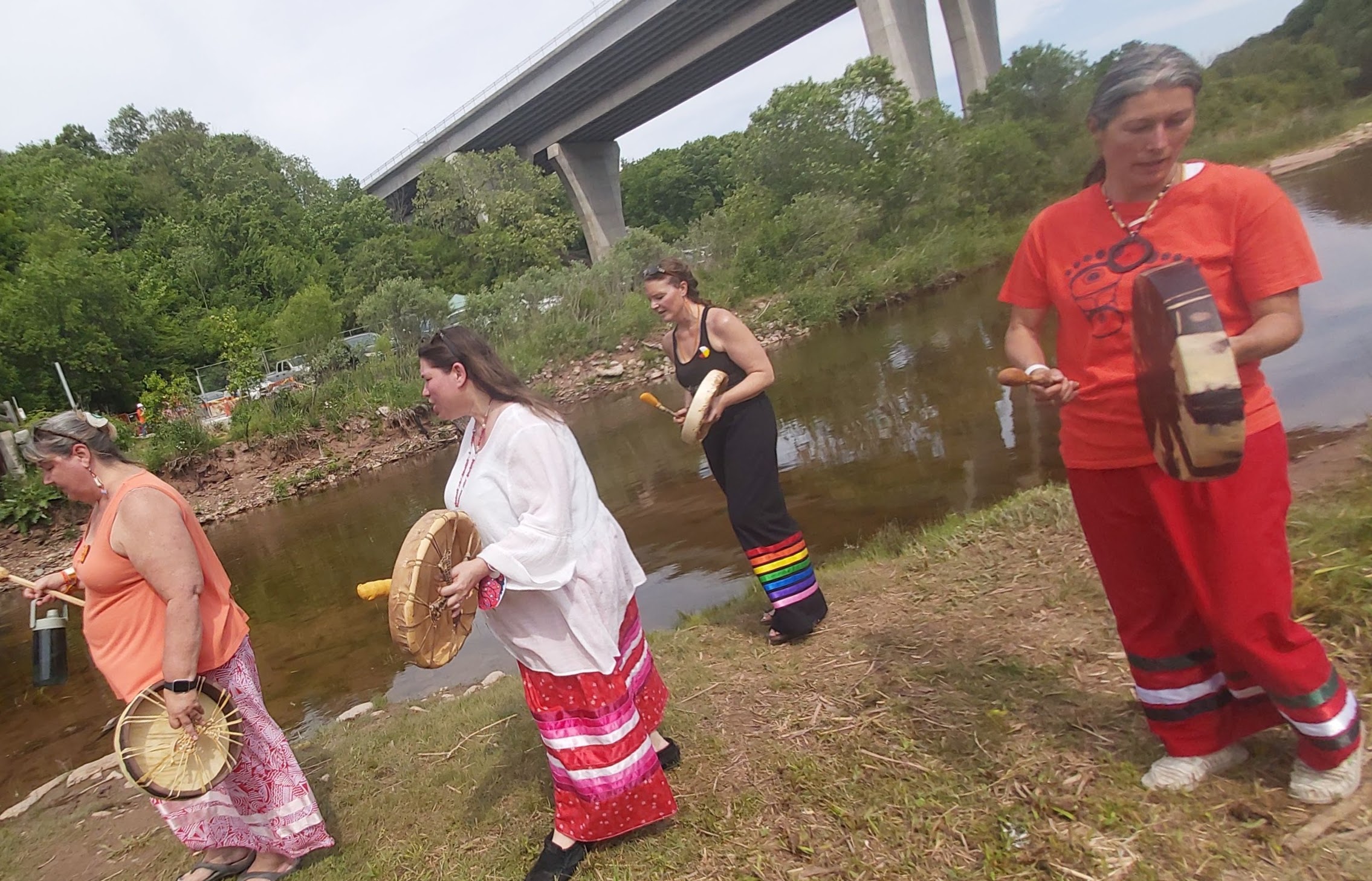This is the story of one man's life, to put a face to how the residential school system reverberates through the generations.
Stephen Paquette served for many years as the keeper of indigenous knowledge for the Halton District School Board.

Stephen’s mother was a residential school survivor. Residential school survivors were traumatized in school by some, and in some cases all, of these: separation from their parents; loneliness; being forced to speak a new language; being forced to abandon their mother tongue; being forced to reject the culture of their childhood home; being made to feel shame about their race and origins; being physically abused; being forced to discard familiar clothing and wear the clothing of the settlers; being bullied; witnessing the loss of schoolmates to disease; being sexually abused; losing any sense of what love, family, or parenting should be.
Many children were born to residential school survivors, and authorities decided, rightly or wrongly, that the cycle would perpetuate itself if they were left in the care of people who were not able to parent the next generation.
Stephen, like thousands of other children, was taken from his mother and adopted out to a white family. They were decent, caring people, but the forced separation from his mother was and is painful. This removal from their own parents and adoption with settler families was called the Sixties Scoop, as it occurred mostly in the 1960s.
It tore children from their culture rather than looking for a way to repair the damage to that culture caused by colonialism and in particular by the residential school system. It was yet another manifestation of a belief in the superiority of European culture and the need to eradicate indigenous culture "for their own good."
The road to hell, as has often been said, is paved with good intentions. Residential schools and the Sixties Scoop are manifestations of that principle, and the repercussions will be with us for generations.
Stephen grew up playing Cowboys and Indians and was always a Cowboy, fighting against the bloodthirsty, treacherous, and dirty Indians. When he found out later he was indigenous, it was another new trauma. He felt ashamed of who he was, and has had to overcome that sense of being less than others, inferior.
Stephen did well enough in school that he considered applying to York University to study law, but his white parents had been told not to expect much from him academically because he was an "Indian." Like others in his situation, Stephen could not help internalizing the social judgment that he was a second-class citizen.
In the end, Stephen found his way to the Metropolitan Toronto Police, where he had a solid career. It speaks well of his resilience, perseverance, and character. He has come to embrace his indigenous identity, indeed, to take a rightful pride in it. He is one of the lucky ones. Many have been much less fortunate.
Did he reach his full potential? Does he deal every day with the consequences of his disrupted childhood, from being raised in a culture that disdained his own, only to learn he was an outsider to that culture, and belonged to the one it judged inferior? Has this hurt his own relationships?
Does he have to work hard to try to pass on a forgiving, loving outlook to his own children, and to break the cycle of trauma and damaging lack of self-esteem internalized in his mother’s generation and his own?
To me, Truth is about acknowledging what happened, and how traumatic it was and still is. Reconciliation is about helping to break that cycle, to re-empower indigenous Canadians with autonomy and agency, and to embrace each other as partners in the building of a brighter future for all.
We print this story with Stephen’s kind permission.